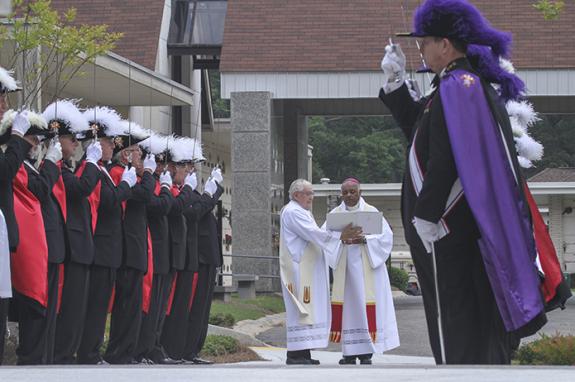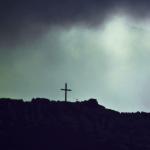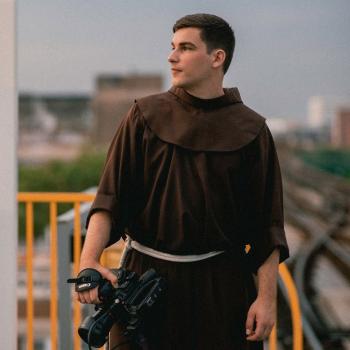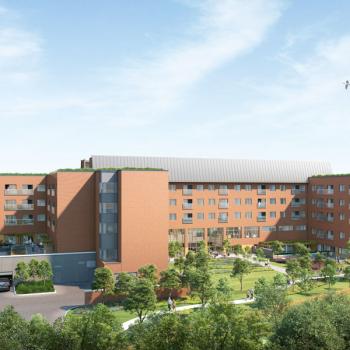There are still places in the United States where deacons are minimized, marginalized, dismissed or, even, ignored.
So to find an archdiocese not only honoring the diaconate on the 50th anniversary of its restoration but even celebrating it is something exceptional and gratifying. It is a sign of hope.
A write up from the Georgia Bulletin:
In a September letter to pastors in the Archdiocese of Atlanta, Archbishop Wilton D. Gregory, urged parishes to celebrate the anniversary of the restoration of the permanent diaconate.
“As you know, we are richly blessed by the steadfast service of over 250 permanent deacons in our local church,” wrote Archbishop Gregory. “Their work supports the pastoral efforts of you as pastors, me as archbishop, and the good people that all of us are ordained to serve.”
The archbishop encouraged parishes to set aside time on Sunday, Nov. 25, the Feast of Christ the King, to celebrate the ministry of deacons at the parish level and thanked deacons publicly for “their responding to the call to serve the lord and His Church in the ministry of Charity and Word.”
Deacons have existed in the church since the earliest days of Christianity. According to the National Association of Diaconate Directors (NADD), the roles of deacons evolved and were diminished to the point that the diaconate became only a stepping stone toward priesthood (transitional deacon).
At the Council of Trent (1545-1563), there was interest in restoring a permanent diaconate, but no action was taken. Interest was revived in the 1900s with theologians recognizing the need for deacons to help spread the ministry of the church into the world.
A 2015 study by the Center for Applied Research in the Apostolate at Georgetown University indicates that there are over 18,500 permanent deacons in the United States today, accounting for more than half of the world’s 30,000 deacons.
Deacon Dennis Dorner, director of the permanent diaconate in the Archdiocese of Atlanta, said there is something special about the inclusion of the full experience of Holy Orders when deacons are included in the church’s liturgies and ceremonies.
“The deacon has a unique role, as do the bishops and priests. These roles are complementary,” explained Deacon Dorner. “The reality of the deacon being both clergy and yet living and working in the secular world allows us to be a bridge between the two. The deacon is often referred to as the ‘Icon of Jesus the Servant’ and our diaconal role is just that, in service to the entire church.”
That’s just the beginning. Visit the home page of the Georgia Bulletin and you’ll find several stories devoted to the diaconate ministry in Atlanta. Kudos to the editorial team at the Bulletin — and the late, great executive editor Mary Anne Castranio — for this terrific coverage. This is how the seed for vocations is planted, and how more come to be aware of God’s call in their lives and in his work in the world.
And most of all: thank you, Archbishop Gregory, for supporting your deacons in their mission to serve the people of God.













